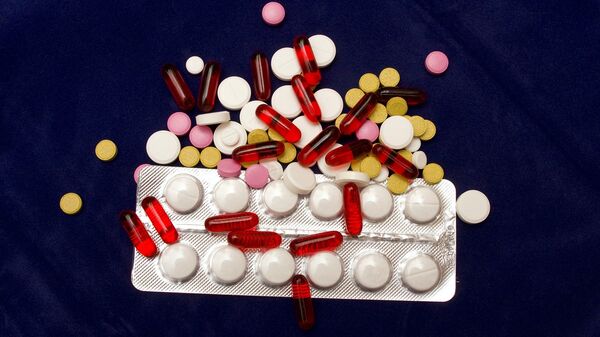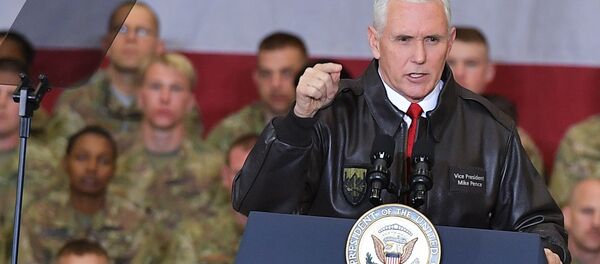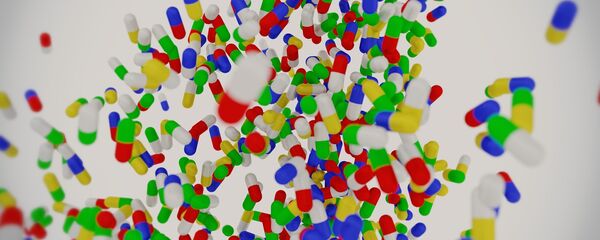The World Health Organization (WHO) has issued a report regarding the manufacturing and spread of counterfeit medicine that might be the cause of death of hundreds of thousands of people. WHO experts estimated the worldwide value of this illegal market at around $30 billion.
Such drugs can also be found in Afghanistan, where shipments of medicine are not controlled strictly or scrupulously. The situation is made even worse by so-called "medical mafia" groups.
Hamkani, who is chairman of a commission on healthcare, physical education and youth in the Parliament of Afghanistan, explained to Sputnik that most drugs on Afghan shelves are counterfeit.
"More than 85 percent of people in Afghanistan buy low-quality drugs more expensively than they would cost on the world market. These drugs are poison."
Hamkani pointed out that bad drugs cannot cure even the most simple of diseases. He believes that the main reason for the drug black market's existence is the absence of government control and the activity of mafia groups.
"Afghanistan drug imports are the responsibility of the Ministries of Internal Affairs, of Healthcare, of Finance, and of National Security of Afghanistan. Since, on the one hand, Afghanistan does not have full control over its borders, and, on the other hand, all programs exist only on paper, no measures have been taken at this moment."
Hamkani says that the work of the commission on low quality drug control, created a few months ago on the president's order, has still given no results; he also says that Hamkani's own commission's effort without government support is fruitless.
Wal, director of the National Department of Medicines of the Ministry of Healthcare of Afghanistan, thinks the main issue in Afghan pharmaceuticals is not the fake drugs, but drug smuggling.
"The results of the US Agency on International Development (USAID), World Bank and quality control laboratories in Afghanistan showed that Afghanistan has no problem with low-quality drugs. One of the main problems in Afghanistan are smuggled drugs, not fake ones."
He said that a national directorate on medicines control has been created, which, during the campaign against drug smuggling, suspended the activities of 817 firms and 1,193 companies that illegally imported drugs into Afghanistan. Contraband drugs have been reduced from 40 to 25 percent of those on the country's shelves.
"Quality control laboratories have been opened in Kabul and there are plans to launch similar laboratories in four other districts — in Mazar-i-Sharif, Kandahar, Herat and Nangarhar. More than 200 pharmacists will be inspected. Those found guilty of smuggling drugs into the country will face responsibility in accordance to national law," Kame Wal said.
He pointed out that the torrent of drugs comes from 29 different countries, with most being smuggled from neighboring states. Meanwhile, Wal underscored Afghanistan's interest in "import of low-price high-quality drugs from Uzbekistan."




